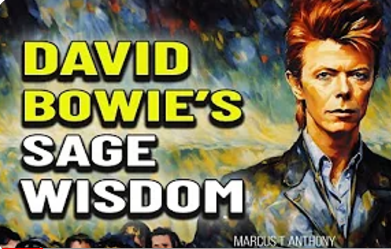
In the age of clickbait, of misinformation and disinformation, we often hear about “bad faith actors.” A bad faith actor is a person who deliberately attempts to lie and deceive others, presumably for nefarious purposes, such as pushing a political or ideological agenda, or just seeking attention and power. It is a useful idea to reflect upon, especially in regards to the people, groups, movements and institutions that are prominent in popular and political discourses. Ideally, we’d like to take guidance from good faith actors and good faith media, while avoiding bad faith actors as much as possible.
But I would like to suggest that there is no simple dichotomy between good faith and bad faith actors and actions. My preference is to think of ourselves as being posited along a continuum of acting in good faith AND in bad faith. After all, we know that bias is a defining trait of the human mind, and that many of our thoughts and actions have unconscious drivers. In this sense, some people we might like to think of as bad faith actors may not be consciously trying to manipulate or deceive. And sometimes they may act in good faith. Further, our perception of them will inevitably reflect our own worldview and biases.
All of us fluctuate along the good-faith-bad-faith continuum at any given time, and the same is true of the people that we engage with. This is why simply calling someone a bad faith actor may not the best way to think of them, even though some people will tend towards the “negative” polarity. So, I would like to expand our definition of bad faith actors to: “Those who either deliberately and/or unconsciously manipulate and deceive for the purposes of power and control over others.”
Such a frame is a little more uncomfortable to contemplate than a simple good versus bad scenario, because we are moving into the realm of the shadow. And we have to ask ourselves whether we are tending towards the bad faith end of the spectrum at any given time. I have been alive a long time, and am yet to see or hear a single human state that they are – or have ever been – a bad faith actor. It’s always the other guy. The other team. But if we are to transcend the culture wars and our political and tribal bickering, there’s really no choice but to shine the torch of illumination back into our own faces. For there we just might discover a splinter or several in our own eye.

Perhaps you are like me, and feel uncomfortable with participating in movements and with groups who are acting in bad faith. I was trained years ago in deep shadow work, and can quickly sense when people and groups are being driven by unconsciousness. This occurs where “the big lie” hides just beneath the surface. Inevitably the behavior and stated aims and values of the person or group contradict themselves. The level of integrity begins to decline. Often rapidly.
The good faith inventory I include below is a simple way of assessing the degree to which a person, group or movement is acting in good faith or bad faith. By their fruits, ye shall know them. You can use this simple inventory to assess a particular person, debate, social/political movement, media channel or organisation. This should help you to choose whether to allow yourself to (continue to be) emotionally or mentally taken into the cognitive wake of those spaces . Or, you can apply the questions to yourself, for any given situation.
Your answers will be subjective, of course. Just answer them in good faith, so to speak. Each question has two options. Circle the left-hand column number if your best answer is a positive, the right-hand number if it is the negative. Circle the question mark if you are undecided or neither applies. Then add up the total score.
| Is there an open discourse (or a noticeable ideological, political or institutional agenda)? | 1 | ? | -1 |
| Is it safe to voice a dissenting perspective before the actor or group, & is there a spirit of respectful disagreement (or is there an insistence on conformity, with dissent punished)? | 1 | ? | -1 |
| Is there respect for facts & the truth, regardless of how confronting (or misinformation & disinformation, including a typically rigid narrative framing, &/or a common omission of (potentially) important facts & stories)? | 1 | ? | -1 |
| Is the intention of the actor or group mostly creative, moving towards a noble & purposeful end (or noticeably destructive, regularly targeting enemies for personal & professional attack, and ultimate silencing & exclusion)? | 1 | ? | -1 |
| Is the emotional mindset balanced and bi-partisan (or partisan & tribalistic)? | 1 | ? | -1 |
| Is there a sense of purposeful positivity in this person or movement (not negative) | 1 | ? | -1 |
| Is the movement driven by a spirit of generosity and sharing (or self-interest and lack)? | 1 | ? | -1 |
| Is there a culture of emotional and cognitive responsibility (or chronic anger, rage & projection)? | 1 | ? | -1 |
| Is there a spirit of empathy, compassion, tolerance and forgiveness (or blaming & shaming)? | 1 | ? | -1 |
| Does the actor or movement depict the people they criticize humanely (or are they dehumanized, & represented as dangerous threats)? | 1 | ? | -1 |
| Is the focus upon ideas and positive values (or on the ad hominem, the threat of the other)? | 1 | ? | -1 |
| Is there an attempt to understand the position of the other (or not)? | 1 | ? | -1 |
| Is my mind, psyche & sense of well-being being enhanced by engagement (or do I feel myself being dragged into anger, drama & projection)? | 1 | ? | -1 |
| Is the actual behavior (not stated ideals) of this actor or movement aligned with my Authentic Self, my genuine beliefs & values (or does it contradict them)? – Think: what is my Authentic Self, & what are my core values? | 1 | ? | -1 |
| Am I becoming a better person by engaging this space, or at least retaining a strong connection to who I am (or am I becoming a worse version of myself)? | 1 | ? | -1 |
| Is my capacity for love, wisdom, inner peace & understanding enhanced by engaging this actor or movement (or is that declining)? | 1 | ? | -1 |
The higher your score, the more “good faith” is the actor or movement, and your engagement with them.
- 0 or below. Bad faith. Best avoided. Negative mental contagion is likely.
- 1-5. Badish faith. More bad faith than good. You might like to question your engagement, or at least be mindful of how you engage this space – and how you might be being manipulated.
- 6-11. Goodish faith. More good faith space than bad. But be conscious of how you engage the negative aspects.
- 12-16. Good faith. You are in the right space and with the right people. For now.
As stated, this inventory is subjective. The aim here is not to tell you what you should do or whom you should spend your time with. The prime purpose is to help us be mindful of the spaces and discourses we frequent online and off. Finally, in the introspective traditions a common theme is developing “the right relationship” with the world. In that sense, the power is with you, not the good or bad faith actors out there. As long as you are wise and aware.
This is an extract from Marcus T Anthony’s upcoming book, Power and Presence: Reclaiming Your Authentic Self in a Digitized World.






